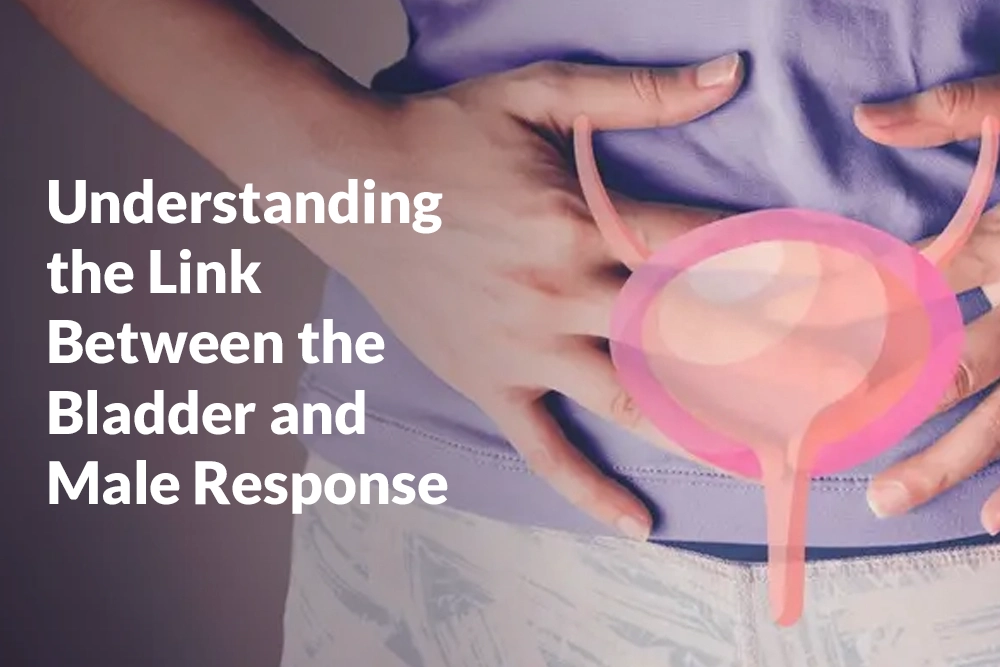There are a lot of confusing connections between a man’s bladder and his having to go to the bathroom. They involve physical, neurological, and emotional reasons. Many men struggle to urinate now and then. Men can take control of their own health by knowing why these issues occur and when they are symptoms of an illness.
Why some guys can’t go to the bathroom sometimes
Men tend to have bladder hesitancy, meaning they find it difficult to pee. This becomes worse as they age. A benign prostatic hyperplasia (BPH) that enlarges is the most prevalent cause. This may press on the urethra and can make it difficult for the urine to pass. This condition most often worsens over time, and symptoms may include a dribble, weak stream, or difficulty beginning to urinate. Hesitancy may be caused by an infection in the urinary stream or the prostate. Following this, the pee will most often become cloudy, burn, or feel urgent. They are: Certain medications, such as decongestants, antidepressants, or medications used for incontinence, can have side effects making it difficult for the muscles to relax or the bladder to communicate.
If you have had previous accidents, surgery, or catheterization, which has produced scar tissue within your urethra, it will become more difficult hence men struggle to urinate as it will narrow the passage.
Your pelvic muscles become stiff when you are extremely nervous or tense, and this makes it more difficult to relax and to use the bathroom. In such a situation, the pelvic floor will not function properly.
Neurological issues, such as multiple sclerosis, diabetic neuropathy, or injury to the spinal cord, make it difficult for the brain and bladder to communicate with one another.
Some of the issues can be more apparent at certain times, such as after taking some medications, when you are anxious or concerned, or following surgery.
The interplay between the neurological system and the urine tract
The bladder is controlled by a big group of nerves and muscles attached to the brain and spinal cord. The steps below are followed to hold urine within the body and expel it:
The detrusor muscle is the smooth muscle that contracts to force urine out of the bladder.
If you fill up your bladder with parasympathetic nerves, they will relax it. If you empty your bladder, they tighten it up.
Sympathetic nerves: These assist in keeping the bladder and urethra loose while you’re holding your pee.
Whenever the bladder detects that it is full, it sends a signal to the brain, which in turn alerts the rest of the body that it is time to use the restroom.
You learned to make yourself pee or not on your own when you were a child. But brain disease or brain injury can ruin this system, and you may end up with a neurogenic bladder, where you lose control and develop symptoms of holding your urine or incontinence.
Things in the body and mind that influence reaction
There are things other than body health that can impact your ability to pass urine. Mind and society conditions also have a lot to do with it. Mental diseases, stress, and anxiety can alter the way the nervous system controls the bladder.
In this situation, your bladder might squeeze when you don’t intend for it to happen if you are very anxious or stressed. This might cause you to go to the bathroom more frequently or leak urine.
Stress and fear can inhibit the micturition reflex, which makes it difficult, though men struggle to urinate.
Sexual assault, trauma, or bathroom phobias may alter the manner in which an individual urinates since they impact the nervous system.
Depression and mental deterioration may make it more difficult to hear or respond to signals from the bladder.
Urinary tract problems can really make individuals feel bad. Individuals with incontinence or other chronic urinary conditions might feel depressed, anxious, and ashamed and also avoid others. Unintended leaks can isolate people and reduce the quality of their lives.
This shows how important it is to take care of and maintain both the physical and mental health of the bladder.
When it starts to hurt your health
Holding up or stopping your urine flow might be a minor annoying issue, but if you do not repair it, it can become very bad. The buildup of urine in the bladder can lead to an increase in pressure. The kidneys may suffer long-term harm from this. If you do not treat urine retention, it can cause bladder stones, recurrent UTIs, and even kidney failure.
Get medical help right away if you experience any of the following:
- Sudden inability to urinate
- Severe pain or swelling in the lower abdomen
- There is blood in the urine.
- Conditions that cause you to become feverish or chilled
- Symptoms that worsen with time, such as a stream that becomes weaker with time or having greater difficulty initiating to urinate
Advice that will assist you and when to seek medical attention
Men whose bladders are causing them discomfort can do some positive things to improve their health and function:
Training your bladder: Slowly hold out longer between trips to the bathroom in order to improve your ability to control your bladder and its capacity.
If you wish to make sure your bladder is totally empty, go to the bathroom again soon after. This is referred to as “double voiding.”
Pelvic floor exercises: Strengthening the muscles in your pelvis helps you control your bladder more effectively, particularly after you’ve had surgery on your prostate.
Drink regularly. Drink a lot of water, but not too much coffee or wine because these will damage your bladder.
Check your drugs: Talk to your doctor about any medicines that might be making it hard for you to urinate.
You should see a doctor immediately if your symptoms don’t improve or worsen, or if you experience pain, bleeding in the urine, or other infection signs. Getting treatment early can prevent problems from worsening and improve life in general. A nurse or physician can perform a physical examination, urinalysis, imaging or refer the patient to a urologist for specialized treatment.
That is to say
There are numerous connections between a man capacity for peeing and his bladder, such as via his anatomy, his nervous system, and his psychological state. In order to maintain your bladder in tip-top condition and your quality of life optimal, you should have a clue about what causes urine issues, when they cross over into being a health concern, and what to do about it, such as seeking medical attention when necessary.









Leave a Reply